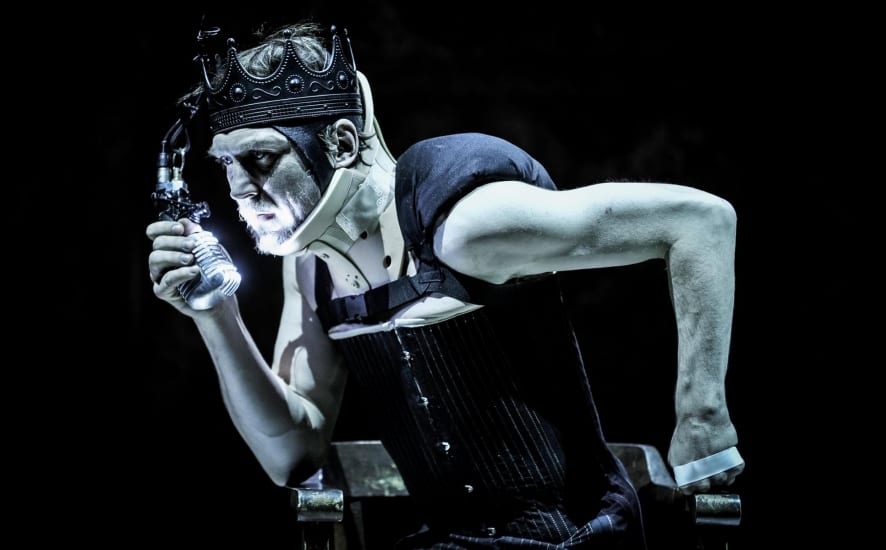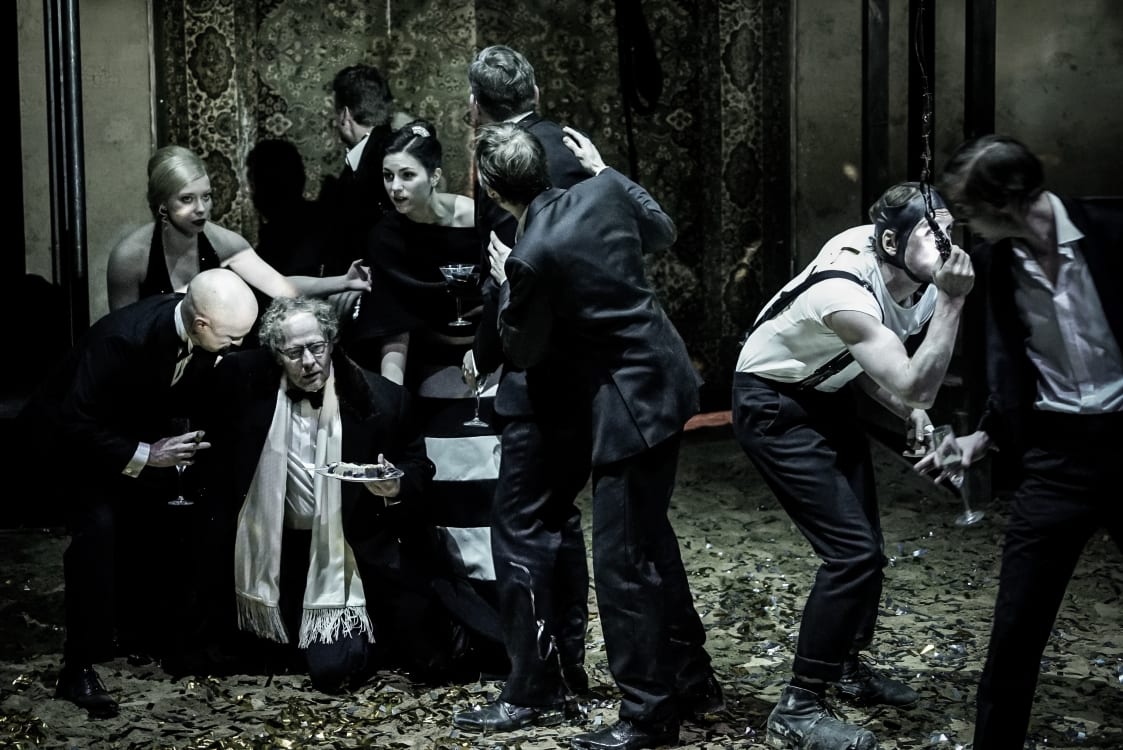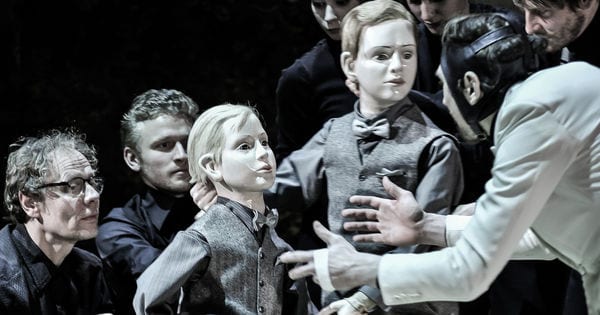Thomas Ostermeier blatantly revealed in a 2015 interview with Joseph Pearson that with his adaptation of Richard III he wanted to celebrate evil on stage because, after all, he said: “Would Richard exist if the world around him weren’t ready for him?” Ostermeier thought then that there was no contemporary political context for his interpretation – how wrong he was.
Richard III has become a go-to example of a political reading of Shakespeare as it portrays the ultimate tyrant: violent, unhinged, manipulative and very successful until his eventual fall from the throne. Whether you modernise the play by transposing it to another time or culture, or not, the effect of watching the production is the same. You are confronted with a world of moral decay where children are killed and women are faced with terrible choices in order to survive, friends turn against one another and family members areas dangerous as actual enemies. All of this is done in the name of power.
Jan Pappelbaum’s stage design chimes with the Middle Ages and modern apocalyptic visions: you can see an abandoned factory and the crumbling wall of a medieval castle. The heavy-duty set is accompanied by heavy metal music, courtesy of Thomas Witte who plays percussion live on stage with ear-splitting force. Yet some scenes are also accompanied by period music, creating moments of relief.
Ostermeier not only blends the Medieval and the modern in his production, which reaches its apogee in the purposefully over-designed costume for Richard III which exaggerates his disabilities. He also blends the onstage reality with that of the auditorium by consistently breaking the fourth wall. And it is here, in Brechtian interventions, where Lars Eidinger’s portrayal of Richard III becomes poignant and political. He is a ridiculous monster who nevertheless is able to win by turning other characters to pity or obedience, while his bizarre comical antics as actor on the Barbican stage make the audience laugh (in all the wrong places) and applaud.
Ostermeier and Eidinger’s Richard III is a one man-show – other characters are no more than shadows of Shakespearean characters, even puppets. Indeed the two young princes who die in the Tower are played by two wooden marionettes. As a result, the misogyny and disgust expressed by Richard III towards Anne, Elizabeth and Margaret feel even more potent because their voices are completely stifled by Eidinger’s comedic, ingratiating performance. Eidinger gives a truly mesmerising, hallucinogenic and acrobatic performance – he is an actor that will not stop at anything, and it is hard not to be enthralled by this powerhouse of expressions, gestures and physical prowess. But the joyous laughter at his performance as Richard implicates the audience in his deeds. This includes Trump-esque locker-room banter with Buckingham, perhaps the most powerful moment of the production. As the audience chanted with Eidinger, ‘Have you eaten pussy yet tonight?’ I suddenly felt sick to my stomach. How is our behaviour different from the followers of Donald Trump, lapping up his every word, cheering his bizarre behaviour and acts? Eidinger’s Richard and Trump are both entertaining clowns but should we laugh at them or challenge them? Does Ostermeier ask us to shout back and stage our own protest? I hope he does because we should never applaud even themost entertaining of monsters.
I urge everyone to see this show and see how Shakespeare can be relevant today. But I also implore you, please challenge Richard and the likes of him, shout back when he asks you to become like him.



